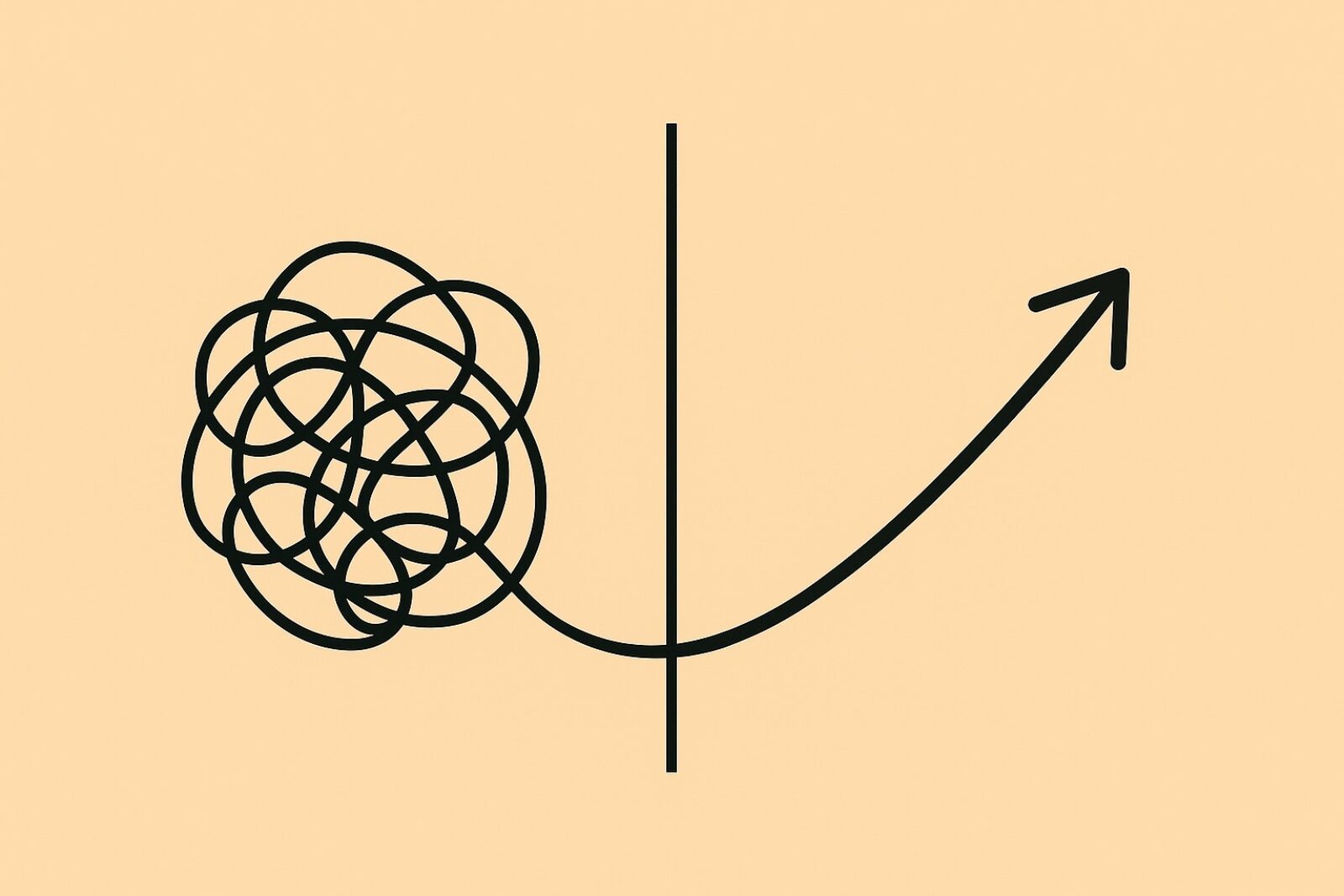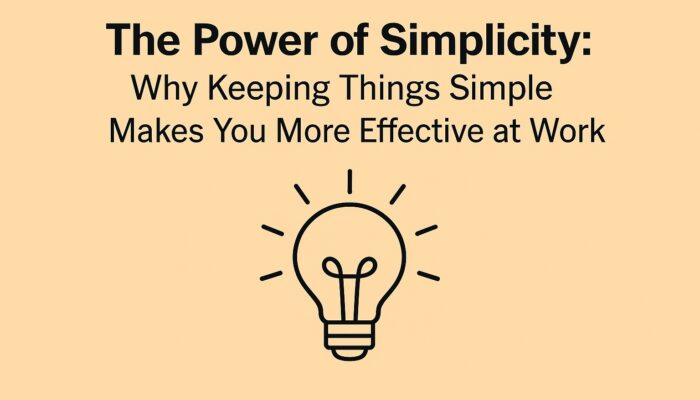Feeling overwhelmed by endless to-do lists, digital tools, and constant noise?
Sometimes, the most powerful way to work better isn't by doing more—it's by doing less. In a world that celebrates busyness, rediscovering the value of simplicity might be the smartest move you make. This article explores how stripping things back can sharpen your focus, reduce stress, and help you thrive—at work and beyond.
In a world obsessed with productivity hacks, multitasking, and complex systems, it’s easy to forget one timeless truth: simplicity works.
Whether you’re a writer staring at a blinking cursor, a leader juggling multiple projects, or a professional buried under digital tools, simplicity offers a lifeline. Not only does it sharpen focus and reduce stress, but it also leads to better, more consistent results. Here’s why—and how—you can start working more simply today.

The Psychology of Simplicity
From a psychological perspective, our brains are wired for clarity. Cognitive overload—trying to manage too many tasks, ideas, or tools at once—drains our energy and reduces decision-making quality. Research shows that mental clutter can increase anxiety and impair memory, making even basic tasks feel overwhelming.
Simplicity counters this. When we strip away the non-essential, our minds relax. We regain a sense of control. This mental space is crucial not just for performance, but also for creativity, problem-solving, and emotional resilience
Mindfulness Meets Minimalism
Mindfulness teaches us to be present and intentional, two qualities that align perfectly with a simpler approach to work. When we slow down and focus on one thing at a time, we become more attuned to what truly matters. We begin to notice which tasks move the needle and which are just noise.
Instead of obsessing over perfection or over-planning, we can embrace the mantra: Do less, but do it well.
Simple Doesn’t Mean Easy
Let’s be clear—simplicity isn’t about doing the bare minimum or avoiding responsibility. It’s about clarity. It’s choosing what matters most and letting go of the rest.
Here are a few ways to practice simplicity in your work:
Prioritise ruthlessly. Start each day by identifying one or two essential tasks.
Limit your tools. Use fewer apps or systems—ones that serve you, not the other way around.
Declutter your workspace. Physical and digital clutter both contribute to mental clutter.
Embrace single-tasking. Multitasking often just means doing more things poorly.
Final Thoughts
In writing, psychology, and life, simplicity is often the path to excellence. It reduces friction, creates space for deep thinking, and aligns our actions with our intentions. So the next time you’re tempted to complicate things, pause. Ask yourself: What would this look like if it were simple?
You may find that the simpler path is not only easier— but far more powerful.
This is the reason we built Worktabs.

